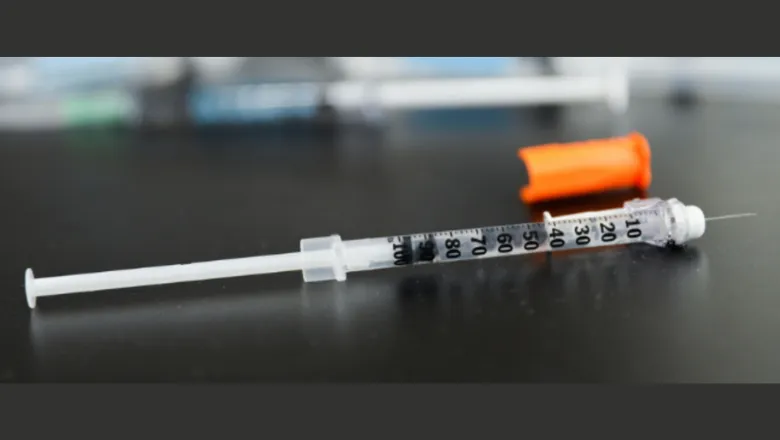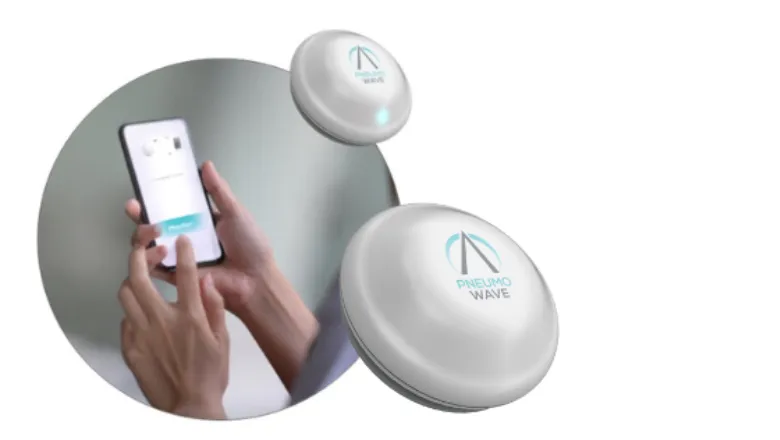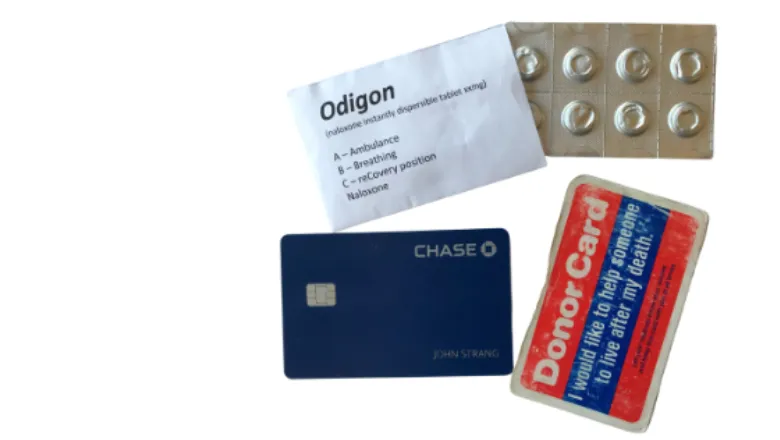Researchers from National Institute for Health and Care Research (NIHR) Maudsley Biomedical Research Centre and King's College London are part of two collaborative research projects funded by the Office for Life Sciences and the Scottish Government to lessen drug-related deaths across the UK.

The funding forms part of the Reducing Drug Deaths Innovation Challenge and is supporting twelve promising projects to develop technologies aimed at improving detection, response or intervention in potential drug-related deaths.
Researchers from the Department of Addictions at the Institute of Psychiatry, Psychology & Neuroscience (IoPPN), King's College London are either leading or partnering in two of the 12 projects. Both of these projects are focussing on novel approaches to tackling overdose deaths that have been proven in the laboratory and are now evaluating them in the real world.
11 projects have been awarded up to £100,000 each to launch four-month feasibility studies to develop prototypes.

One of the King's-linked projects is the only initiative to receive £500,000 for a year-long evaluation. It will use a recently-developed wearable chest sensor which can detect changes in breathing patterns and volume. This will be connected via Bluetooth and mobile devices to a remote monitoring platform and researchers will work with residents of homeless accommodation to collect real-world evidence on its ability to detect overdose events and reduce the risk of opioid overdose death.

With the second King's associated project, the aim is to further improve the accessibility of an opioid overdose antidote - naloxone - which reverses the heroin effect within minutes. King's researchers have been instrumental in the development of a concentrated nasal spray which is now used around the world. However, the number of people who carry naloxone is still low (around 10 - 20 per cent) and this new project aims to establish whether a rapidly disintegrating naloxone can be manufactured and mass-produced, and is also acceptable to drug users and families.
Naloxone saves lives - no question - but it can only save lives if the overdose crisis is recognised and if the naloxone is there at time of need. Our new projects are assessing innovative approaches to help improve the availability and accessibility of naloxone to reverse overdoses. With our partners we will be testing a wearable sensor that can detect the absence of chest wall movement and send an alert through Bluetooth connectivity to bring safety monitoring to the potential crisis situation. We are also assessing the feasibility of an ultra-portable form of naloxone that can be slid into purse or wallet or stuck to back of phone, and which can be easily administered with escalating dose titration, just as an ambulance paramedic would do.
Professor Sir John Strang, Director of the National Addiction Centre, Institute of Psychiatry, Psychology & Neuroscience, and Deputy Lead of the NIHR Maudsley BRC Theme in Pain and Addictions
Collaborative and innovative projects
King's College London and NIHR Maudsley BRC researchers are actively involved in two projects, one testing the potential of a new AI-powered overdose-detecting wearable sensor, and the other testing the feasibility of a new form of fast-release and easily portable opioid overdose antidote. A third project is also separately being explored by a spinout from King's, exploring feasibility of a network of drones to deliver naloxone remotely.
- RESCU2 - this project will evaluate the use of PneumoWave ALERT which is a remote monitoring platform designed to make opioid usage safer and consists of a discrete, chest-worn biosensor paired to a mobile device. This can detect the onset of life-threatening respiratory depression during an overdose event and then alerts nearby carriers of naloxone, and emergency medical services. This project will recruit residents of homeless accommodation to test the detection of overdose events and gain usability feedback from both patients and from their care team with the aims of demonstrating ability to detect overdose crises and thereby reduce drug deaths. The technology is provided by PneumoWave with whom King's will work, alongside the University of Dundee, as well as third sector partners.
- Ultra-portable fast-dispersal buccal naloxone - this project will test the feasibility and acceptability of a new tablet form of the opioid overdose antidote naloxone. Previously naloxone has been an injection or a nasal spray but these products are bulky and very few people carry them on their person. The new lyophilised buccal tablet disintegrates almost instantly and can be carried in wallet, purse or on the back of a phone so that it is always with an individual at an overdose emergency. It has also been formulated to be dispersed and absorbed quickly so it will have a fast effect. The project is led by King's College London in partnership with the manufacturer Catalent and pharma company Accord Health, working with Scottish Drug Forum, Scottish Families affected by Alcohol and Drugs (SFAD), DrugFAM and South London Health Innovation Network (HIN).
Reducing Drug Deaths Innovation Challenge
This challenge is being delivered in partnership with the Scottish Government as part of their National Mission on Drugs which has invested £500,000 of the funding, in partnership with the Office for Life Sciences, which has invested the remaining £4.5 million of the funding. NHS Fife will be leading on the programme management for this innovation challenge.
Minister of State for Health Will Quince said:
"Drug use has a devastating impact on people's health, their families and their livelihoods and every year over 4,000 people in the UK die from an avoidable drug overdose. We want to stop people taking these substances and support them to recover from their addictions, while preventing those most at risk from dying from overdoses. This fund forms part of our healthcare mission programme as we take a Vaccine Taskforce style approach to some of the biggest challenges facing our society today, backed by over £200 million."
The competition has been designed in close consultation with the Welsh Government and Northern Ireland Executive to increase the potential for uptake and use of these life-saving innovations in all parts of the UK. All UK nations are represented as either applicants or collaborators who are leading the successfully funded projects.
The central objective of this competition is to develop innovative technologies that help to reduce drug-related deaths and harm across the whole of the UK and help people who use drugs and their support networks to work together to save lives. This will support in delivering on the UK's drugs strategy, From harm to hope: a 10-year drugs plan to cut crime and save lives, and the Scottish Government's National Mission on Drugs.







